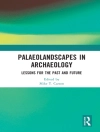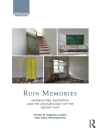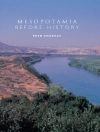Cultural Heritage Management and Indigenous People in the North of Colombia explores indigenous people”s struggle for territorial autonomy in an aggressive political environment and the tensions between heritage tourism and Indigenous rights.
South American cases where local communities, especially Indigenous groups, are opposed to infrastructure projects, are little known. This book lays out the results of more than a decade of research in which the resettlement of a pre-Columbian village has been documented. It highlights the difficulty of establishing the link between archaeological sites and objects, and Indigenous people due to legal restrictions. From a decolonial framework, the archaeology of Pueblito Chairama (Teykú) is explored, and the village stands as a model to understand the broader picture of the relationship between Indigenous people and political and economic forces in South America.
The book will be of interest to researchers in Archaeology, Anthropology, Heritage and Indigenous Studies who wish to understand the particularities of South American repatriation cases and Indigenous archaeology in the region.












